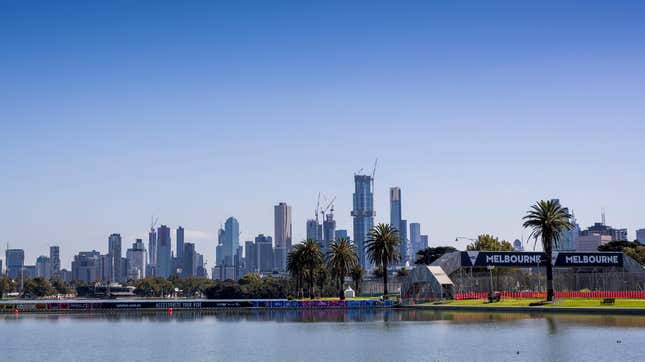
Just because 2020 has been replaced with 2021 on your wall calendar, that doesn’t mean all of last year’s problems have evaporated. You may recall that the season-opening Australian Grand Prix wasn’t cancelled until the Friday of race weekend after McLaren had already withdrawn from the race due to crew members having contracted Coronavirus. You may also recall that it was an absolute mess from parties on all sides. Well, this year it’s looking like Formula 1 has learned its lesson and will be postponing the first race of the year a couple of months before it is set to kick off.
Back in March of 2020, F1 was extremely stubborn and refused to take heed of this rapidly growing disease, which would soon blossom into a full blown pandemic. Only by sitting back and reevaluating everything about how it hosts a Grand Prix, F1 was able to hold a mostly full season compacted into just the latter half of the year, entirely within the boundaries of Europe, the Middle East, and Asia.
This year, the series, and the FIA in general, are taking more precautions even than last year. Travel races like Australia and those in the Americas are subject to a set of rules developed for the Abu Dhabi event to close the 2020 season; teams, drivers, and personnel are forced to stay separated from the civilian population in a ‘biosphere’ consisting of the race track and a nearby hotel. Unfortunately, this isn’t enough planning and preparation for the Australian authorities.
Because Australia demands everyone travelling into its borders self-isolate for 14 days it would be impossible to keep the current season schedule. The Australian Grand Prix, planned for March 21st, would mean drivers and teams would need to arrive to set up by at least the 15th. Teams will be running a pre-season test in Valencia, Spain on March 2nd, 3rd and 4th, meaning there won’t be enough time between the two events for a self-isolation period.
Taking a peek at the provisional 2021 Formula 1 schedule, the postponement of the Australian Grand Prix will promote the Bahrain Grand Prix to the position of the new season opener one week later on March 28th. Bahrain hosted a pair of COVID-safe races in 2020, meaning it should have no problem doing the same this year.
If and when the Aussie decision is made, that will likely mean a change for the Barcelona test. Due to the regulations of the sport, the test can take place no closer to the start of the season than two weeks, giving teams an opportunity to push the test back a week and maintain that gap. It’s possible the test will be moved a week in the hopes of better weather, but also for the fact that teams will be allowed an additional week of development work before hitting the track.
With twenty other Grands Prix on the 2021 calendar, it’s going to be a logistics nightmare to find a gap in the schedule where teams could make the trip back to Australia to fit in a race. There is still a TBA slot in the schedule after the Chinese Grand Prix in April, which would make a lot of sense for travel purposes, but with just two weeks separating the GP weekends, teams would potentially run into the same self-isolation requirement. Then again, maybe F1 isn’t really considering travel much of a dealbreaker, as its June schedule sees teams running three races in Azerbaijan, Canada, and France, in that order.
The news of this happening isn’t exactly surprising, given Formula E’s decision to postpone its own season opener. It’s clear that after a year of fighting this, the FIA isn’t quite so eager to rush into a potential Coronavirus nightmare. If I’m honest with myself, I’m okay with Australia just not being on the schedule again this year. There are 20 more events on the biggest schedule in history. We don’t really need to rush to try to fit it in.